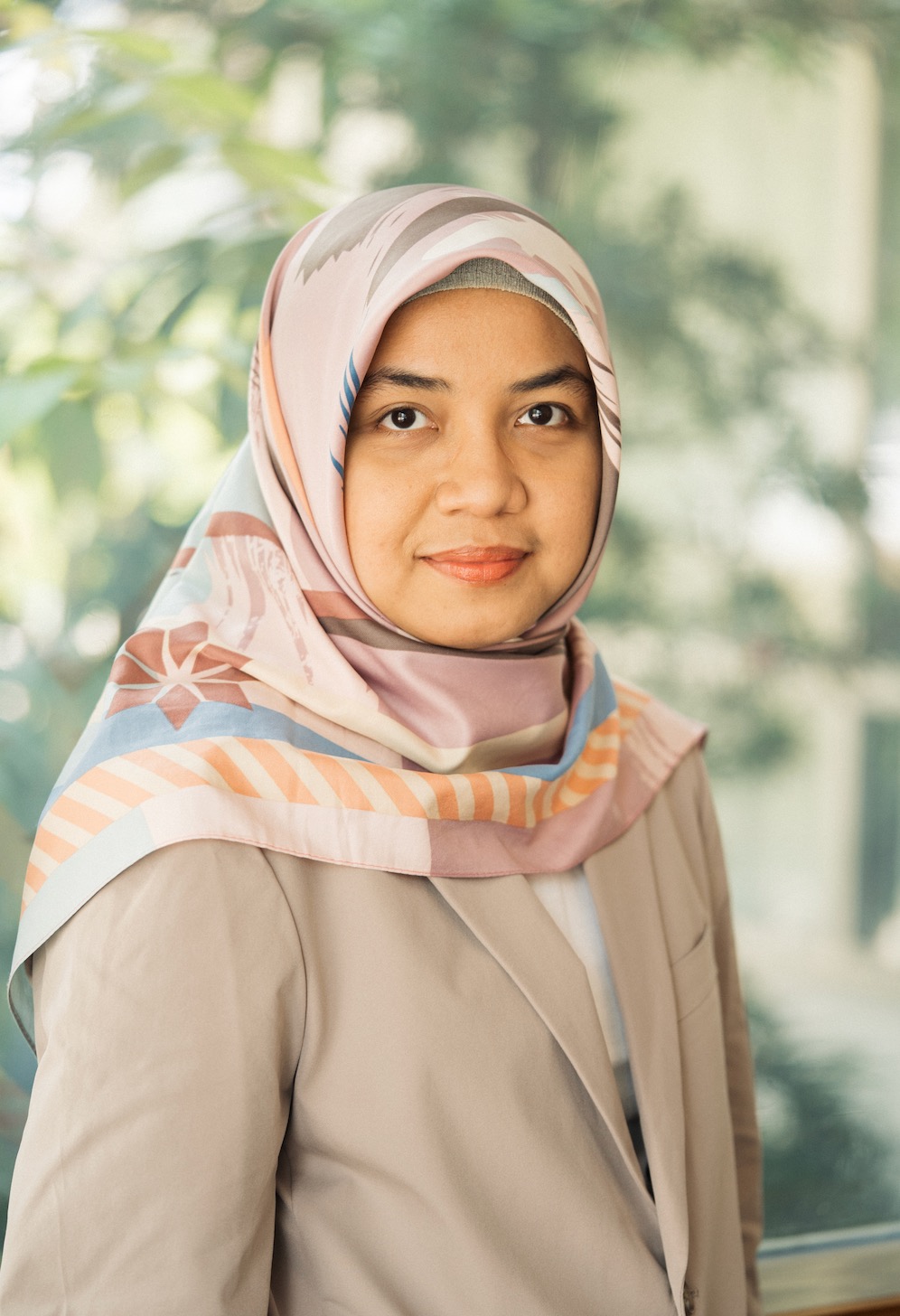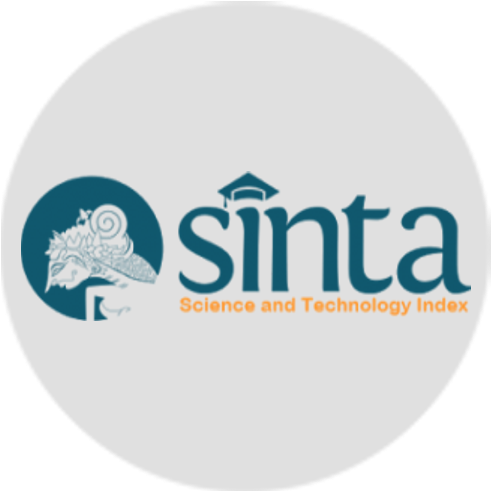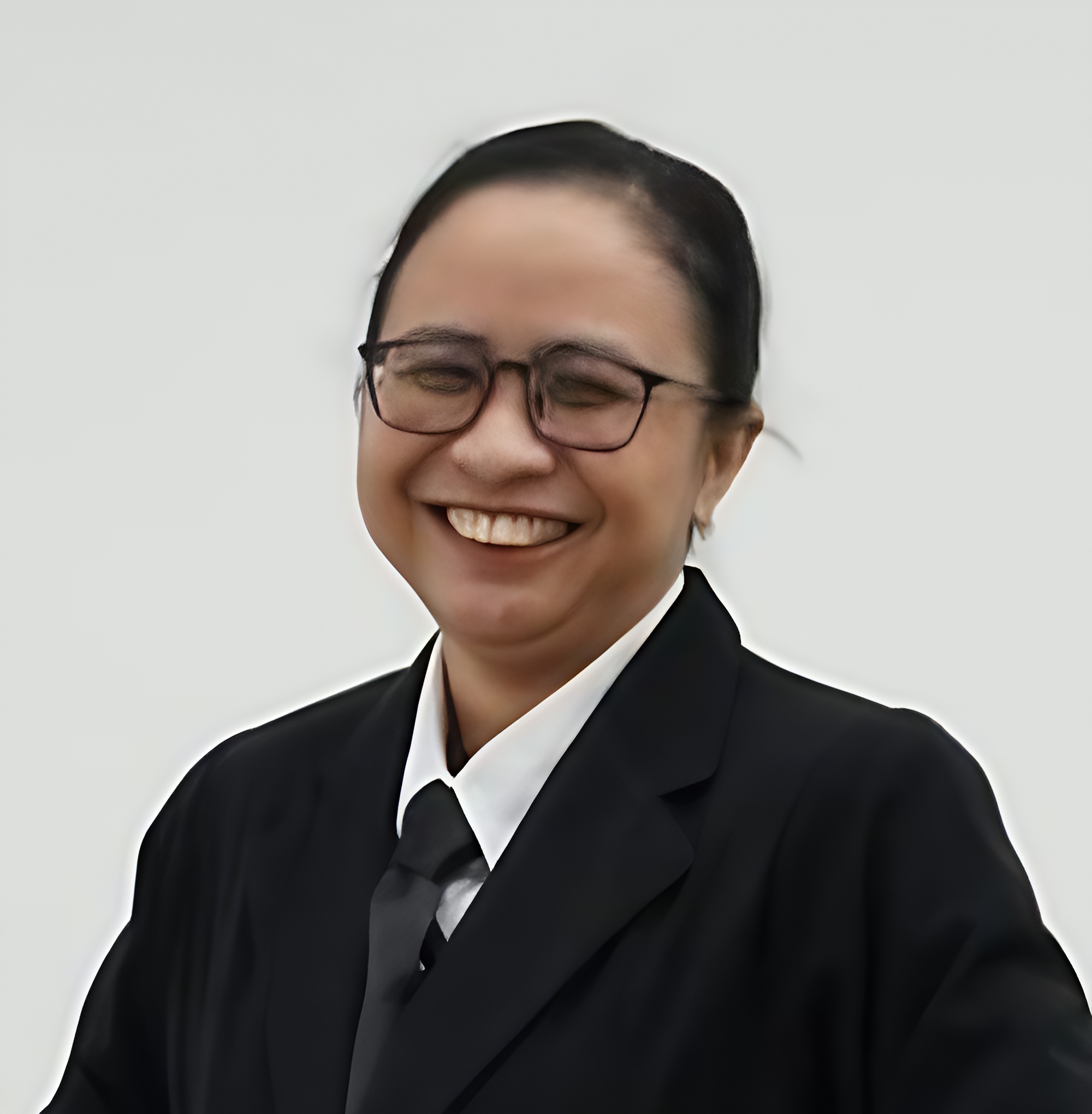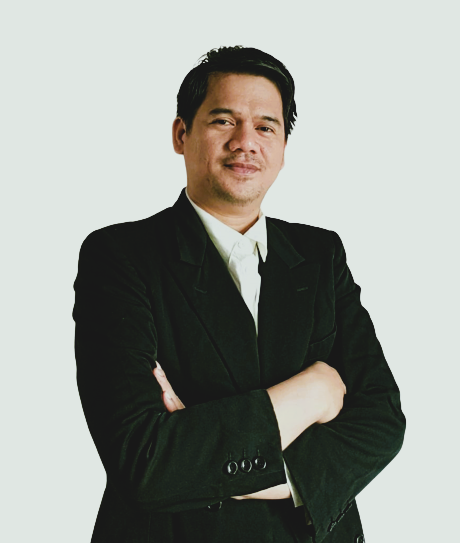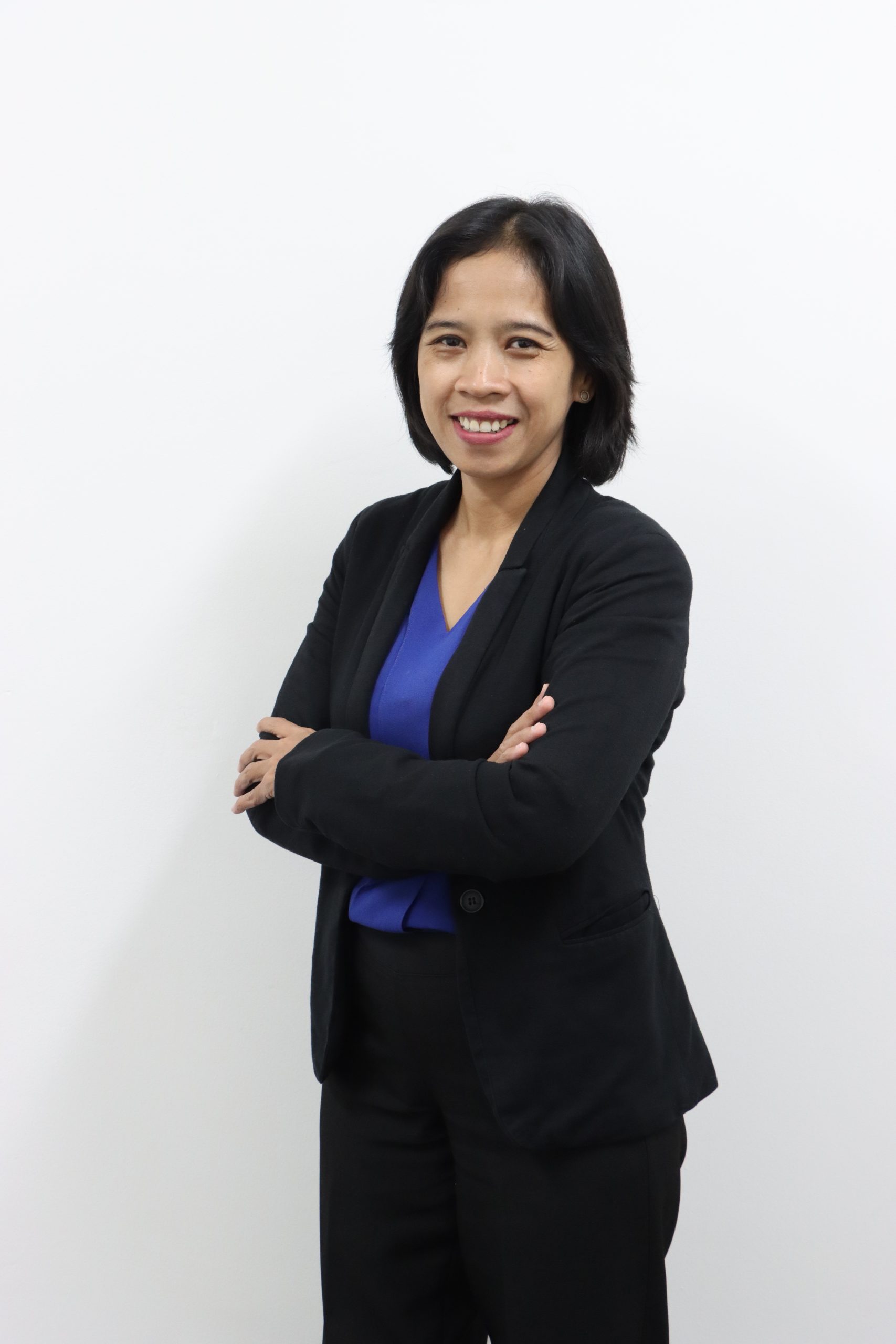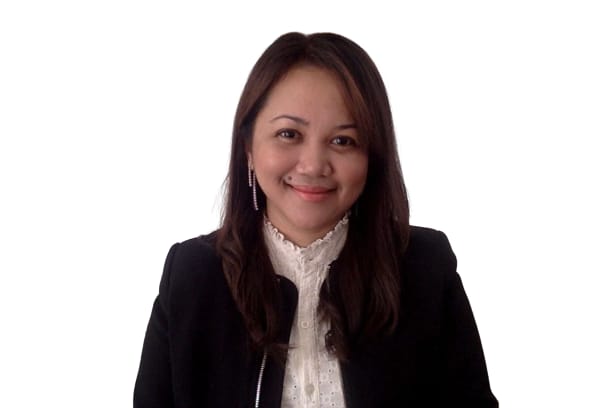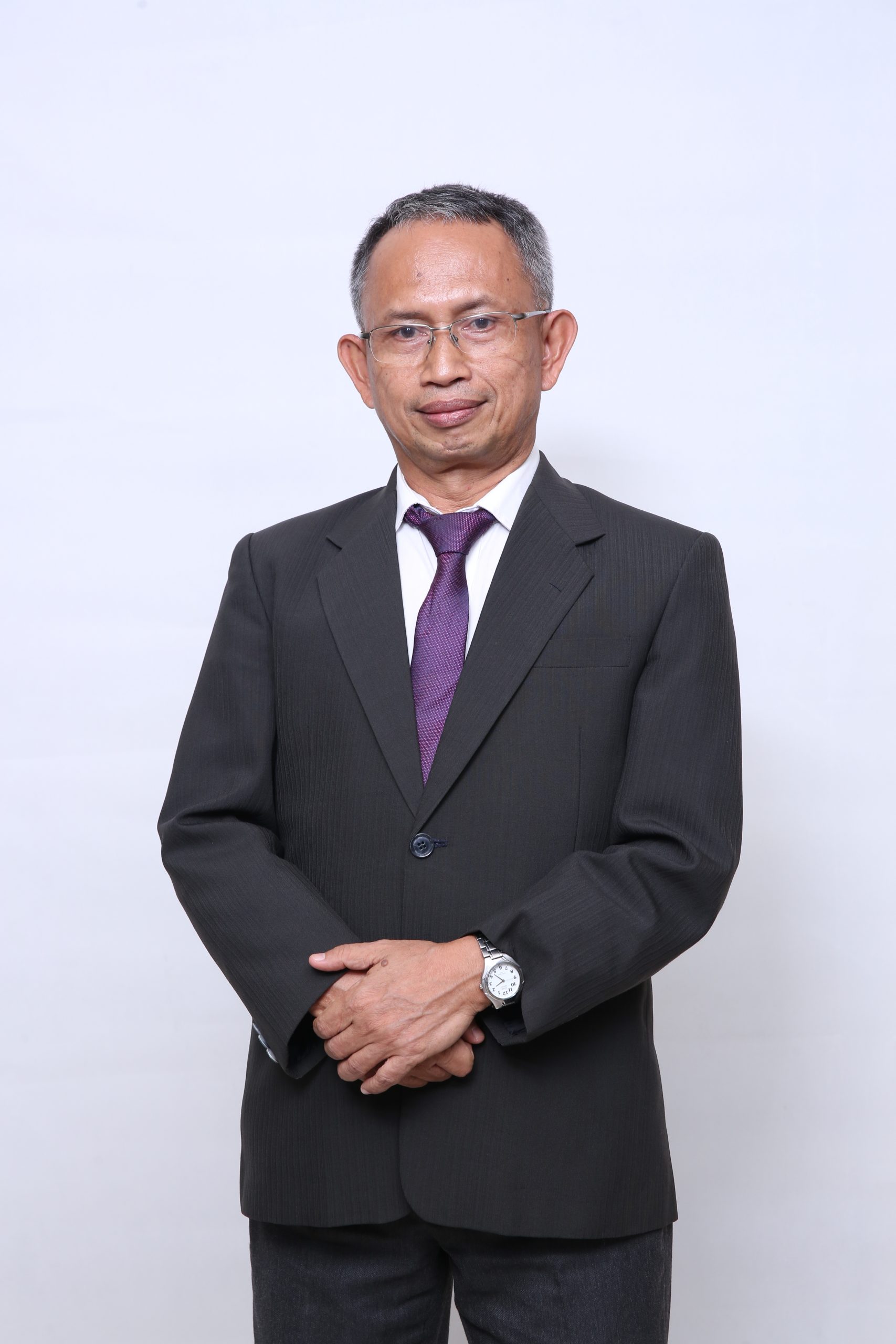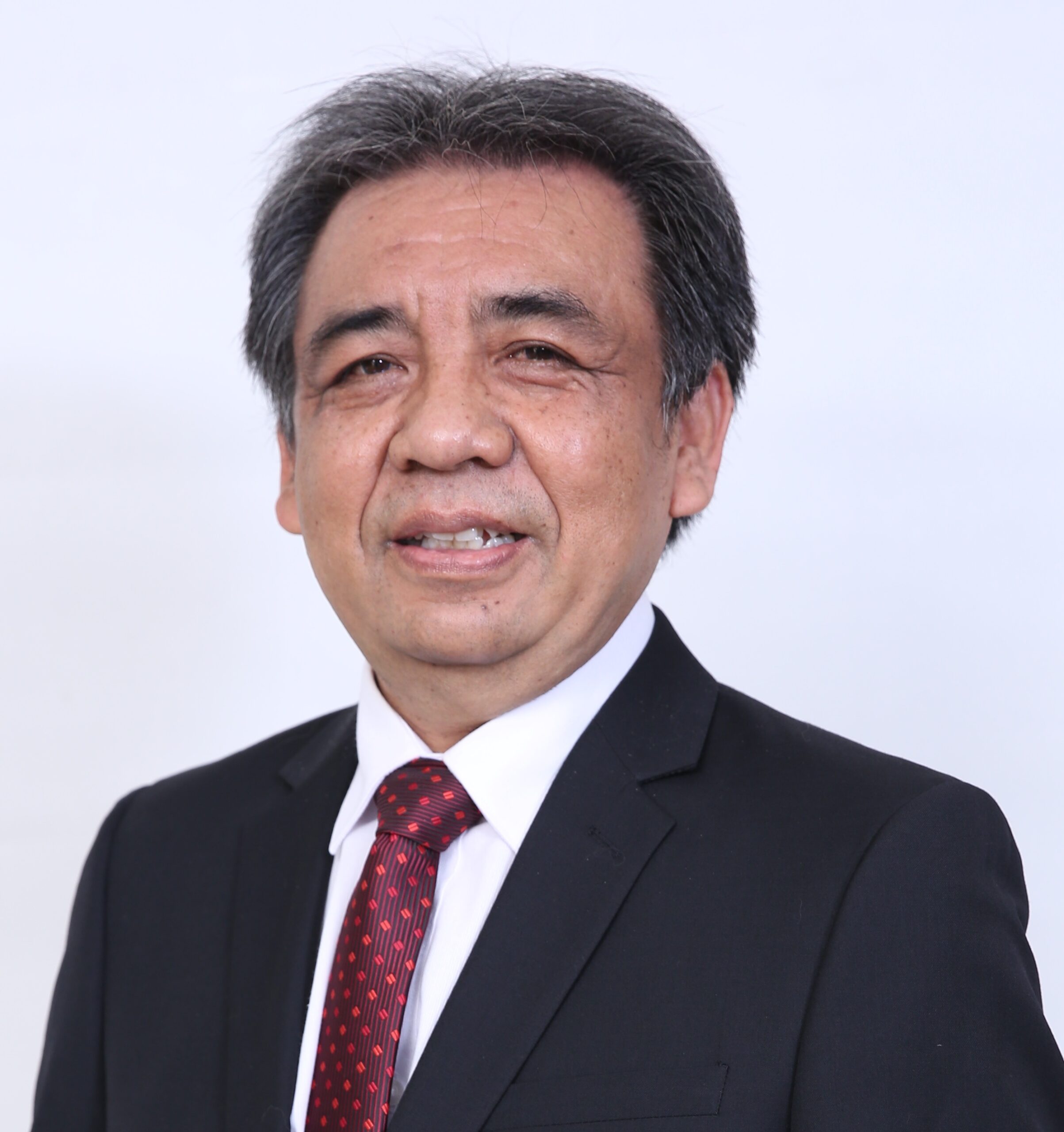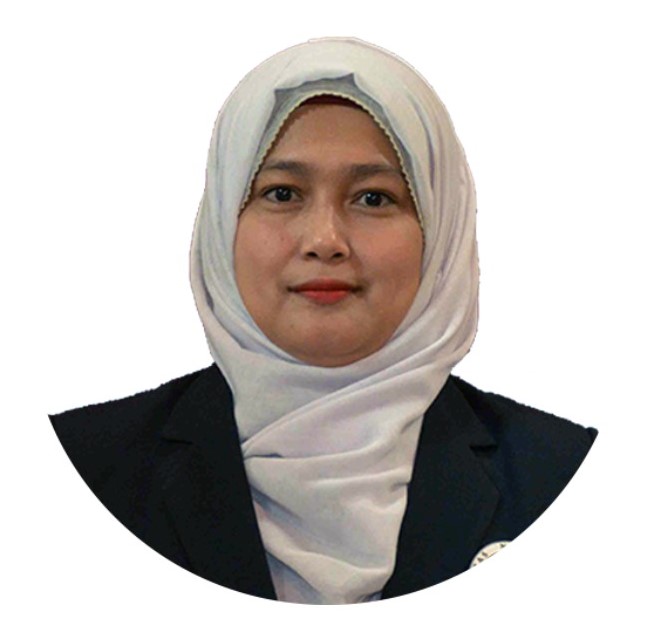Afifah Muharikah, S.S., M.Hum., Ph.D.
About Lecturer
Afifah Muharikah, S.S., M.Hum., Ph.D. is a new lecturer and researcher at Universitas Islam Internasional Indonesia, with a growing focus on inclusive education, neurodiversity, and second language acquisition. She earned her Ph.D. from the School of Humanities, Language, and Social Science at Griffith University, Australia, where she explored inclusive classroom interactions between autistic and non-autistic students in second language (L2) learning environments. She also holds a Master’s degree in Applied Linguistics for L2 Teaching from Universitas Indonesia and her first degree in English Language and Literature, Universitas Nasional, Jakarta, Indonesia. She has taught at both undergraduate and postgraduate levels. Her teaching and research emphasize accessible learning spaces and communication strategies that support diverse learners.
She recently completed a postdoctoral fellowship at the Public Policy Research Centre, National Research and Innovation Agency (BRIN), contributing to inclusive policy research in higher education. In 2024, she founded the Muharikah Institute, a small but growing initiative to promote inclusive education in Indonesia. In its first year, the initiative has focused on teacher engagement and community outreach, aiming to bridge research and everyday practice in education.
Griffith University, Queensland, Australia
Magister Ilmu Linguistik (L2 Teaching)Universitas Indonesia, Jawa Barat, Indonesia
English Language and Literature
Universitas Nasional, Jakarta, Indonesia
Public Policy Research Centre, National Research and Innovation Agency (BRIN).
01 April 2024 – 31 March 2025
Lecturer (Assistant Professor)
Jurusan Teknik Informatika dan Komputer, Politeknik Negeri (PNJ)
02 March 2015 – 28 January 2019
English Instructor
Lembaga Pendidikan Bahasa LIA Depok
01 October 2010 – 31 June 2018
Elementary and Secondary Teacher
Sekolah Alam Semut-Semut & Indonesian Natural School
01 December 2010 - 31 December 2012
Book Chapters
Muharikah, A., Karnalim, O., Natsir, S. (2022). Hybrid learning for a better-quality education for post-COVID-19 learning recovery: Indonesian teachers’ perspectives. In M.A., Hidayahtulloh, I., Jati & D. Sumardani (Eds). Indonesia Post-Pandemic Outlook: Social Perspectives. https://doi.org/10.55981/brin.536.c471
Journal Articles
Muharikah, A., Li, M., & Roberts, J. (2022). A scoping review of teaching and learning of English as an additional language among autistic individuals. Malaysian Journal of Learning and Instruction, 19(2), 1–35. https://doi.org/10.32890/mjli2022.19.2.1
Conference Proceeding
Utami, A., Muharikah, A., Fadilah, S., Rizkulloh N., Qisti, R.C., (2023). Accessibility of inclusive Education in Indonesia: A Trajectory from classroom practice to policy recommendation. In Stream: Education & Difference: Gifted Education ECE2023 Conference Proceedings.
Karnalim, O.,Muharikah, A., Natsir, S. Online learning for high quality education: Perspective of Indonesian Educators. (2022). In International Conference on Advanced Learning Technologies (ICALT) Proceeding. https://doi.org/10.1109/ICALT55010.2022.00115
Newspaper Opinion
Muharikah, A. (25 Aug 2020). Access to college for special needs kids remains elusive. The Jakarta Post. https://www.thejakartapost.com/academia/2020/08/25/access-to-college-for-special-needs-kids-remains-elusive.html
Dr. Paradika Angganing, M.Pd.
About Lecturer
Dr. Paradika Angganing, M.Pd. is a new lecturer at Faculty of Education Universitas Islam Internasional Indonesia. She is interested in elementary education and focusing on theory of learning models and curriculum. She completed her bachelor’s degree at Elementary School Teacher Faculty at Universitas Sebelas Maret (UNS); her master and doctoral program in Primary Education at Faculty of Education, Universitas Negeri Yogyakarta (UNY). She has experienced teaching as homeroom teacher at Elementary school for one year and lecturer at Elementary School Teacher at Faculty of Teaching and Education in Universitas Veteran Bangun Nusantara for more than ten years. Her community service focused on teacher training to design and develop teaching material. She is also a peer reviewer for Prima Magistra: Jurnal Ilmiah Kependidikan and an editor for Dikdas Bantara Journal. Her disertation and research is on learning models, curriculum and problem materials in Elementary School. She can be reached at paradika.angganing@uiii.ac.id
Universitas Negeri Yogyakarta
Magister Pendidikan bidang Pendidikan Dasar (2013)
Universitas Negeri Yogyakarta
Sarjana Pendidikan bidang PGSD (2011)
Universitas Negeri Sebelas Maret
SDN 2 Wonokarto Juni 2011-Juni 2012
Lecturer
FKIP Universitas Veteran Bangun Nusantara Agustus 2012-Juni 2025
Journal Articles
Angganing, P., Budiningsih, C. A., & Haryanto, H. (2022). The profile of students’ communication skills on science Learning in elementary schools. Pegem Journal of Education and Instruction, 13(1), 117–124. https://doi.org/10.47750/pegegog.13.01.14
Angganing, P., Mahendra, M., & Pujiyana. (2024). Pelatihan Pemanfaatan Barang Bekas pada Program P5 bagi Bagi Guru dan Siswa Kelas Rendah di SDN IV Sukoharjo. Jurnal Masyarakat Indonesia (Jumas), 3(02), 68–72. https://doi.org/10.54209/jumas.v3i02.83
Conference Proceeding
Hermawati, Y. K., & Angganing , P. . (2022). PENERAPAN MODEL PROBLEM BASED LEARNING (PBL) DALAM PEMBELAJARAN DARING UNTUK MENINGKATKAN HASIL BELAJAR TEMATIK. PROSIDING SEMINAR NASIONAL PENDIDIKAN PROFESI GURU, 1(1). Diambil dari https://seminar.ustjogja.ac.id/index.php/semnas_ppg_ust/article/view/314
Dr. Nirwan, M.Hum.
About Lecturer
Dr. Nirwan, M. Hum. is a new lecturer at the Faculty of Education,UIII. He obtained his Doctoral degree in Linguistics from Udayana University, Bali; his Master’s degree in Linguistic was from Hasanuddin University; and his Bachelor’s degree in English Language Education was from UIN Alauddin Makassar. His doctoral research examined language use through an ethnographic approach within cultural contexts, with a particular focus on metaphor, indexicality, performance, and language ideology. He works on two broad, and related, areas of research: The first is linguistic anthropology (language in culture), which focuses on the relationship between language, culture, and society—how language is applied in social contexts, and how identity, power, and education are shaped via language. The second is Critical Discourse Analysis, which explores how discourse reflects and constructs social realities, specifically in relation to issues of power, ideology, and inequality in various context. Future research will integrate these two areas within educational contexts, as part of an interdisciplinary approach dedicated to the study of language, education, and culture—highly relevant to the Education and Society concentration.
University of Udayana (2021)
Master’s degree in Linguistic
Hasanuddin University (2013)
Bachelor’s degree in English Language EducationUIN Alauddin Makassar 2010
Faculty of Education, Universitas Islam Internasional Indonesia (UIII)
2025-Present
Head of English and Literature Department
Universitas Pertiwi
2023-2024
Lecturer
Sekolah Tinggi Bahasa Asing pertiwi
2021-2023
Nirwan (2025). Kecerdasan berbahasa, memulihkan kesatuan manusia: Membaca kembali Indonesia dari sudut pandang kebahasaan. Dalam B. Karolus Budiman Jama (Ed.), Bunga rampai (hlm. 147–152). Pustaka Larasan.
Nirwan. (2023). Bahasa dan Sosial. Infes Media. https://www.google.co.id/books/edition/PENGANTAR_LINGUISTIK_UMUM/7bDJEAAAQBAJ
Nirwan. (2023). Bahasa dan budaya: Pengenalan bahasa dan budaya (pp. 1–14). Infes Media. Diakses dari Google Books: https://books.google.co.id/books?id=8EHJEAAAQBAJ&printsec=frontcover&hl=id
Conference Proceeding
Nirwan. (2018). An Exploration of the Verb ‘Baha’ in Pakkado, Mandar, Indonesia: A Study of Natural Semantic Metalanguage. Paper presented at the 1st International Conference on Local Languages: Empowerment and Preservation of Local Languages, Faculty of Arts, Udayana University.
Nirwan. (2019, January 23–26). I call you through fire: A Pakkado love magic parallelism. Paper presented at The GLOCAL 2019 – The Global Council on Anthropological Linguistics, Siem Reap, Cambodia. Unpublished manuscript available at the conference website.
Journal Articles
Nirwan. (2024). Reduplikasi nomina dan verba dalam masyarakat Pakkado’ di Sulawesi Barat. Kulturistik: Jurnal Bahasa & Budaya, 8(1), 36–42. https://doi.org/10.22225/kulturistik.8.1.6852
Nurridzka Fadyaramadhani, Nirwan, N., & Hilda Sari Wardhani. (2024). Fantasy: Exploring Moral Values in Barbie Movie 2023. DEIKTIS: Jurnal Pendidikan Bahasa Dan Sastra, 4(2), 153-163. https://doi.org/10.53769/deiktis.v4i2.745
Works in Progress:
Denyut Kata dalam Kebudayaan: Sebuah Tafsir Filosofis atas Kada nipamalolo. Book Manuscript in Progress.
Andar Nubowo, Ph.D.
About Lecturer
Andar Nubowo defended his PhD dissertation in French on the Socio-history of a Justly Balanced Islam (Wasatiyyat Islam) in Indonesia at the Ecole Normale Supérieure (ENS), Lyon, France, in December 2023. In 2008, finished his master degree in Political Sciences at the Ecole des Hautes Études en Sciences Sociales (EHESS) Paris France. Associate Research Fellow at the S. Rajaratnam School of International Studies (RSIS), Nanyang Technological University, Singapore in 2017-2019 and an Associate Researcher at the Institut de Recherche sur l’Asie du Sud-Est Contemporain (IRASEC) Bangkok Thailand in 2023-2024 and Institut d’Asie Orientale (IAO) ENS Lyon since 2019, he is currently a permanent lecturer at the Faculty of Education, Universitas Islam Internasional Indonesia (UIII), West Jawa, Indonesia and an Executive Director of MAARIF Institute for Culture and Humanity Jakarta, founded in 2003 by the late progressive Muslim thinker Ahmad Syafii Maarif. He published his book chapters, articles and op-ed at Routledge, Brill, and RSIS, Jakarta Post, Kompas, Republika. His research interests are Islam, education, politics, and democracy in Indonesia and Southeast Asia. He can be contacted at andar.nubowo@uiii.ac.id
Ecole normale superieure de Lyon (2019-2023)
Master
Ecoles Hauntes Etudes en Sciences Sociales Paris, France
Bachelor at Islamic Theology
UIN Sunan Kalijaga Yogyakarta (1999-2004)
Institute of Defense and Strategic Studies, S. Rajaratnam School of International Studies (RSIS), Nanyang Technological University, Singapore
2017- 2019
Lecturer
Faculty of Politics and Social Sciences of UIN Syarif Hidayatullah Jakarta
2012- 2016
Political analyst
Indonesian Embassy, Paris, France
2009- 2011
Executive Editor
Jurnal Inovasi: Jurnal Ilmu dan Kemanusiaan, LP3 Muhammadiyah University of Yogyakarta
2004-2006
Executive Editor
Majalah Gerbang: Majalah Pendidikan, LP3 Muhammadiyah University of Yogyakarta – Ministry of National Education Jakarta
2004-2006
Program Manager
People Voters Education Network (JPPR)-LP3 Muhammadiyah University of Yogyakarta
2003- 2006
Halim, W., & Nubowo, A. (2025). Muhammadiyah Bugis-Makassar: Dispersal of Muslim Organizations in and from South Sulawesi, Indonesia . Studia Islamika, 32(2), 313–346. https://doi.org/10.36712/sdi.v32i2.4254
Nubowo, A. (2023). Promoting Indonesian Moderate Islam on the Global Stage; Non-State Actors’ Soft Power Diplomacy in the Post-New Order Era, Muslim Politics Review 2 (2), p. 238-283.
“Covid-19, Fatwas, and Socio-religious Praxis: Muhammadiyah’s Social Engagement and Mission in Coping with the Outbreak in Indonesia”, Social Sciences and Missions 35, 2022, Brill, p. 308–342
« Le hause de l’influence islamiste dans le champ sociopolitique indonésien », in Romain Bertolino, Alexandre Negrus, et Nato Tardieu. (2022), Atlas Géopolitique du Monde Contemporain, Paris: Ellipses, p. 192-195.
“In Search of the Imagined Ummah: Explaining the Political Crossover of Islamic Conservatism in Indonesia’s 2019 Presidential Election”, Journal of Asian Social Sciences Research (JASSR), 2 (2), 2020, p. 109-143
“Indonesian Hybrid-Salafism: Wahdah Islamiyah’s Rise, Ideology and Utopia,” in Leonard C. Sebastian, Syafiq Hasyim and Alexander R. Arifianto. (2020), Rising Islamic Conservatism in Indonesia: Islamic Groups and Identity Politics, London: Routledge, p. 181-197.
“The 2018 and 2019 elections in South Sulawesi: Jusuf Kalla’s decline and the return of Islamists” (with Dedi Dinarto), in Leonard C. Sebastian and Alexander Arifianto. (2020), The 2018 and 2019 Indonesian Elections: Identity Politics and Regional Perspectives, London: Routledge, p. 128-144.
“The ‘Conservative Turn’ in Indonesian Islam: Implications for the 2019 Presidential Elections” (with Leonard C Sebastian), Asie.Visions-IFRI, 106 (3), 2019, Paris, 30 p.
“The Three Streams Facing Indonesian Muslims: Pulls of Politics”, en Yang Razali Kassim (ed.). (2021), RSIS Commentary Series: Jokowi’s Second Term, Emerging Issues, Singapore: Worlds Scientific, p. 41-44
“Grand Narratives in Outer Provinces: Impact of Islam on Politics”, en Yang Razali Kassim (ed.). (2021), RSIS Commentary Series: Jokowi’s Second Term, Emerging Issues, Singapore: Worlds Scientific, p. 27-30.
“How do conservative Muslims see Indonesia’s presidential hopefuls.” East Asia Forum, 28 February 2019, https://www.eastasiaforum.org/
“Jokowi’s Soft Diplomacy: Global Islamic Network of Moderation”, RSIS Commentary, Nanyang Technological University, 16 July 2018
“Muhammadiyah: The Challenge of Rising Conservatism”, RSIS Commentary, Nanyang Technological University, 4 May 2018
“Islam dan Pancasila di Era Reformasi: Sebuah Reorientasi Aksi », Jurnal Keamanan Nasional 1 (1), 2015, p. 61-78.
“Arah Baru Politik Islam Indonesia: Dari Nalar Syariatik Menuju Islam Partisipatoris Transformatif”, in Usman Hamid and AE Priyono, Merancang Arah Baru Demokrasi: Indonesia Pasca Reformasi, Kompas Gramedia, Jakarta, 2014.
Membangun Gerakan Anti Korupsi dalam Perspektif Pendidikan, Andar Nubowo and Rosita Susi Aryanti (ed.), Yogyakarta: Lembaga Penelitian & Pengembangan Pendidikan Universitas Muhammadiyah Yogyakarta, 2004.
Seri Pendidikan Pemilih Untuk Pelajar: Menuju Pemilu Yang Demokratis dan Tanpa Kekerasan, Asykuri ibn Chamim, Andar Nubowo, dan Irfan Mawardi. Yogyakarta: JPPR, 2003.
Dr. Lukman Nul Hakim
About Lecturer
Dr. Lukman Nul Hakim is a permanent lecturer at Faculty of Education UIII; he got various work experiences as a researcher at the National Research and Innovation Agency (BRIN). Previously he was a researcher for the Indonesian House of Representatives (DPR RI). Lukman has completed his bachelor’s degree from the Faculty of Psychology, University of Indonesia, master’s degree from the Faculty of Psychology University of Jamia Millia Islamia, and a doctoral degree from the Faculty of Psychology, University of Indonesia. His educational background is in social psychology and organizational psychology. Lukman has long experience in the making process of national public policy. He has written policy papers following issues or policies concerned by DPR RI. He has been involved in the making of policy papers for the bill on the organization of hajj, search and rescue, mental health, social work, cultural heritage, disaster management, and the elderly. His research passion is educational psychology, organizational behavior, leadership, management, and policy analysis. Dr. Lukman can be reached by email at lukman.hakim@uiii.ac.id.
University of Indonesia
Master's degree in Social Clinical Psychology,
University of Jamia Millia Islamia
Bachelor's degree in Psychology,
University of Indonesia
The National Research and Innovation Agency (BRIN)
Researcher
The Indonesian House of Representatives (DPR RI)
Policy Analyst
The Indonesian Embassy in India
Human Resource Manager
Merdeka Newspaper
Founder
Quick Study Centre
Book Chapter:
Anugrah, I. S., Hakim, L. N., Carolina, C., Margono, T., Husmiati, H., Basuki, S., & Purwasantana, D. (2026). Rural youth empowerment through the agricultural entrepreneurship program model Youth Entrepreneurship and Employment Support Services (YESS): The case of the Miduana Indigenous Community in Indonesia. In R. Dutta & S. Trivedi (Eds.), Agripreneurship, digital inclusion and sustainability: Rural innovation and growth in the Global South (pp. 14–31). CABI. https://doi.org/10.1079/9781836992646.0002
Alamsyah, P., Wijaya, G., Hakim, L.N. (2024). Disinformasi di Youtube: Pemilihan Presiden 2019 dan 2024. Dalam Ningtyas, E. Jurnalisme Cek Fakta Melawan Disinformasi Pemilu 2024. (h. 15-36). Jakarta: AJI Indonesia. https://aji.or.id/data/jurnalisme-cekfakta-melawan-disinformasi-pemilu-2024
Hakim, L.N. (2022). Mencacah Angka, Menarasikan Realitas: Memotret Realitas Kelindan Regsosek dan Masyarakat di Pulau Ternate, in Humaedi, M.A. Mencatat untuk Membangun Negeri Narasi Emik Registrasi Sosial Ekonomi Seri 1: Indonesia Tengah-Timur. Jakarta: Epublishing Penerbit BRIN.
Hakim, L.N. (2020). Tanggung Jawab Sosial dan Lingkungan di Masa Pandemi Covid-19, in Prayitno, U.S. Tanggung Jawab Sosial dan Lingkungan Perusahaan. Jakarta: P3DI Setjen DPR RI.
Hakim, L.N. (2019). Pembentukan Sikap Permisif Terhadap Pelecehan Seksual Pada Generasi Z, in Susiana, S. Kekerasan Seksual pada era digital. Malang: Intelegensia Intrans Publishing.
Hakim, L.N. (2015). Faktor-faktor yang penting untuk keberhasilan Program CSR: Sebuah Studi Kualitatif, in Prayitno, U. S. Corporate Social Responsibility: Konsep, Strategi, dan Perusahaan. Jakarta: Azza Grafika.
Hakim, L.N. (2014). Peran Serta Masyarakat dalam Pengelolaan Sampah, in Qodriyatun, S.N. Sampah: Permasalahan dan Pengelolaannya. Jakarta: P3DI Setjen DPR RI.
Hakim, L.N., (2010). Pembentukan Undang-undang Kesehatan Jiwa sebagai Upaya Mendorong Pembangunan Sosial, in Prayitno, U.S. Pembangunan Sosial: Wacana, Implementasi, dan Pengalaman Empirik. Jakarta: P3DI Setjen DPR RI.
Hakim, L.N. (2012). Pembentukan Resiliency pada Anak Korban Bencana, in Susiana, S. Perlindungan Anak. Jakarta: P3DI Setjen DPR RI.
Hakim, L.N. (2011). Upaya Mempersiapkan Kemandirian Masyarakat Kabupaten Mimika Pasca Penutupan Tambang PT Freeport Pada Tahun 2041, in Prayitno, U.S. Pemberdayaan Masyarakat Mimika: Kasus Program Pengembangan Masyarakat PT Freeport. Jakarta: P3DI Setjen DPR RI
Journal Article:
Supriyono, Sumintono, B., & Hakim, L. N. (2025). Critical Islamic educational leadership: investigating how Islamic pedagogic models shape leadership practices. British Journal of Religious Education, 1–18. https://doi.org/10.1080/01416200.2025.2542225
Hakim, L., Winarti, D., Kayen, H., Numan, M., Buana, I., & Barliana, D. (2024). Examining Educational Equity in Indonesia through Student Performance in the Certified Emancipated Learning Internship Program. Aspirasi: Jurnal Masalah-masalah Sosial, 15(2), 143–157. doi:https://doi.org/10.46807/aspirasi.v15i2.4389
Alamsyah, P., Hakim, L. N., Wijaya, G., & Wicaksono, A. (2024). Debunking disinformation on YouTube: a fact check on the 2024 Indonesian election. Jurnal Studi Komunikasi, 8(3), 547 - 560. https://doi.org/10.25139/jsk.v8i3.8348
Putri, A. A. A., & Hakim, L. N. (2024). Lansia Berdaya Bangsa Sejahtera: Konsep Active Ageing terhadap Anak Muda Studi di Yogyakarta. Sosio Konsepsia: Jurnal Penelitian dan Pengembangan Kesejahteraan Sosial, 13(2). https://ejournal.kemensos.go.id/index.php/jsk/article/view/3358
Hermansyah, E., Rizkyanti, C.A., Hakim, L.N. (2024). Rasch Calibration and Differential Item Functioning (DIF) Analysis of the School Well-Being Scale for Students. Jurnal Kependidikan ,10(1), 1-11
Alamsyah, P., & Hakim, L. N. (2023). Mobilitas Penduduk dan Kualitas Udara saat Pandemi COVID-19: Studi kasus DKI Jakarta. Jurnal Wilayah dan Lingkungan, 11(2), 126-140. https://ejournal2.undip.ac.id/index.php/jwl/article/view/17841
Hakim, L. N., Prayoga, R. A. ., Ganti, M. ., Sabarisman, M. ., & Hidayatulloh, A. N. . (2023). Kesejahteraan Semu dalam Dialektika Perilaku Bunuh Diri di Kabupaten Gunung Kidul: Tinjauan Sosial Psikologis. Sosio Konsepsia: Jurnal Penelitian Dan Pengembangan Kesejahteraan Sosial, 12(2). https://ejournal.kemensos.go.id/index.php/SosioKonsepsia/article/view/3185
Hakim, L. N., Santoso, G. A., Takwin, B., Sunitiyoso, Y., & Abraham, J. (2021). Group decision quality, conscientiousness, and competition. Cogent Psychology, 8(1), 1872907.
Hakim, L. N., Susiana, S., Arifa, F. N., Fahham, A. M., Teja, M., & Abraham, J. (2020). Psychological correlates of anti-sexual harassment: Dataset of Indonesia's Generation Z. Data in brief, 31, 105944.
Mulyadi, M., Hariyadi, H., Hakim, L.N., Achmad, M., Syafri, W., Purwoko, D., Supendi, S., & Muksin, M. (2023). The role of digital marketing, word of mouth (WoM), and service quality on purchasing decisions of online shop products. International Journal of Data and Network Science, 7(3), 1405-1412.
Hakim, L. N. (2023). Dampak Pandemi Wabah Coronavirus Disease (Covid) 19 dan Lockdown Terhadap Kesehatan Mental: Kajian Psikologi dan Agama. Jurnal Kajian, 25(2), 161-177.
Hakim, L. N. (2020). Urgensi revisi undang-undang tentang kesejahteraan lanjut usia. Aspirasi: Jurnal Masalah-Masalah Sosial, 17(6).
Hakim, L. N. (2018). Ridwan Kamil: Sang Pendobrak Status Quo. Aspirasi: Jurnal Masalah-Masalah Sosial, 9(2), 192-193.
Wulandari, T., & Hakim, L. N. (2015). Gambaran Manfaat Program Family Development Session Kementerian Sosial Republik Indonesia. Aspirasi: Jurnal Masalah-Masalah Sosial, 6(1), 53-62.
Indahri, Y., Rini, T., Lestari, P., Retnaningsih, H., Hakim, L. N., & Yuningsih, R. (2014). Ketersediaan Obat di Fasilitas Pelayanan Kesehatan dalam Penyelenggaraan Jaminan Kesehatan Nasional. Jurnal Kajian, 19(3), 201-217.
Hakim, L. N. (2014). Ulasan konsep: Pendekatan psikologi indijinus. Aspirasi: Jurnal Masalah-masalah Sosial, 5(2), 165-172.
Hakim, L. N. (2013). Ulasan Metodologi Kualitatif: Wawancara Terhadap Elit. Aspirasi: Jurnal Masalah-Masalah Sosial, 4(2), 165-172.
Hakim, L. N. (2012). Upaya Penanganan Gangguan Kesehatan Mental di Provinsi Gorontalo. Aspirasi: Jurnal Masalah-masalah Sosial, 3(1), 77-86.
Hakim, L. N. (2011). Tindak Kekerasan Terhadap Jamaah Ahmadiyah Indonesia: Sebuah Kajian Psikologi Sosial. Aspirasi: Jurnal Masalah-Masalah Sosial, 2(1), 17-30
White paper:
Naskah Akademik revisi Undang-Undang Republik Indonesia Nomor 8 Tahun 2008 tentang Penyelenggaraan Ibadah Haji
Naskah Akademik Undang-Undang Republik Indonesia Nomor 29 Tahun 2014 tentang Pencarian dan Pertolongan
Naskah Akademik revisi Undang-undang Republik Indonesia Nomor 13 Tahun 1998 tentang Kesejahteraan Lanjut Usia
Naskah Akademik Undang-Undang Nomor 18 Tahun 2014 tentang Kesehatan Jiwa
Policy paper:
Hakim, L.N. (2021). Olimpiade Tokyo Di Tengah Pandemi Covid-19: Belajar Dari Kasus All England. Info Singkat, Vol. XIII, No.9/I/Puslit/Mei/2021
Hakim, L.N. (2021). Tantangan Program Vaksinasi Anak. Isu Sepekan, Vol. 4/Juli/2021
Hakim, L.N. (2021). Pro Kontra Sekolah Tatap Muka. Isu Sepekan, Vol. 1/Desember/2021
Hakim, L. N. (2020). Pelindungan Lanjut Usia Pada Masa Pandemi Covid-19. Info Singkat, XII, 13–18.
Hakim, L. N. (2020). Perlindungan Lanjut Usia Pada Masa Pandemik Covid-19. Info Singkat, XII (10/II/Puslit/Mei/2020).
Hakim, L.N. (2020). Batasan Usia Dan Kesejahteraan Lansia. Info Singkat, Vol. XII, No. 19/I/Puslit/Oktober/2020
Hakim, L.N. (2019). Meminimalisasi Konflik Antara Pendukung Dua Kubu Calon Presiden Dalam Pilpres 2019. Info Singkat, Vol. XI, No.10/II/Puslit/Mei/2019.
Hakim, L.N. (2018). Urgensi Dukungan Pelatih Mental Bagi Atlet Nasional. Info Singkat, Vol. IX, No. 18/II/Puslit/September/2017.
Hakim, L.N. (2018). Ketahanan Keluarga Dan Budaya Kolektif Bangsa Indonesia. Info Singkat, Vol. X, No. 13/I/Puslit/Juli/2018
Hakim, L.N. (2015). Dampak Psikologi Kisruh PSSI. Info Singkat, Vol. VII, No. 11/I/P3DI/JUNI/2015.
Hakim, L.N. (2015). Upaya Perlindungan Terhadap Penyintas Kejahatan Seksual. Info Singkat, Vol. VII, No. 10/I/P3DI/JUNI/2015
Hakim, L.N. (2014). Upacara Bendera Dan Nasionalisme. Info Singkat, Vol. VI, No. 22/II/P3DI/November/2014
Hakim, L.N. (2013). Meningkatkan Kualitas Perguruan Tinggi Lokal Melalui Internasionalisasi Pendidikan Tinggi. Info Singkat, Vol. V, No. 20/II/P3DI/Oktober/2013
Hakim, L. N. (2012). Urgensi Perlindungan bagi Anak. Info Singkat, Vol. IV, No. 14/II/P3DI/Juli/2012
Dr. Destina Wahyu Winarti
About Lecturer
Dr. Destina Wahyu Winarti completed her Ph.D. in Mathematics Education at the University of Canberra, Australia, Faculty of Education. Before her Ph.D., she completed two Master’s degrees in mathematics and realistic mathematics education. Respectively from Institut Teknologi Sepuluh Nopember (ITS) and Universitas Negeri Surabaya (UNESA). For the latter, part of her study took place in The Freudenthal Institute, Utrecht University, The Netherlands. She has extensive experience in education as a mathematics teacher and a lecturer at the institute for teacher training and lesson designer in her Master’s and Ph.D. studies. She also provided training for participating teachers before the design implementation at schools. In addition, she was a reviewer for module development and facilitator for teachers’ professional development (PD) on the Government Partnership for Development (GPFD) project in West Nusa Tenggara Indonesia (funded by DFAT, Australia). Before joining UIII, she was an e-Learning program lead at Tanoto Foundation, a philanthropy organization in Indonesia. She and her team maintained and nurtured a digital platform for teachers’ training and organized online training for teachers from more than 15 provinces in Indonesia. Dr. Destina can be reached by email at destina.winarti@uiii.ac.id.
About research interest: “My research interest is a spatial ability, mathematics education, and learning design.”
University of Canberra (2021)
Master in Mathematics
Universitas Negeri Surabaya & Freudenthal Institute-Utrecht University (2011)
Master in Mathematics
Institut Teknologi Sepuluh Nopember Surabaya (2009)
Bachelor's in Mathematics
Institut Teknologi Sepuluh Nopember Surabaya (2006)
Universitas Islam Internasional Indonesia (UIII), Depok, Jawa Barat, Indonesia.
04/2022- present
Senior Qualitative Researcher
SMERU, Jakarta, Indonesia
04/2022- 33/2023
E-Learning Lead
Basic Education Department, Tanoto Foundation. Jakarta, Indonesia
03/2021-03/2022
Research Assistant
STEM Education Research Centre (SERC), University of Canberra, Australia
2017-2018 & 2020
Tutor
The Ngunnawal Centre Tutoring Program to Aboriginal & Torres Strait Islander students undertaking studies at the University of Canberra, Australia
2019 – 2020
Indonesian Language Teachers Assistant (ILTA)
Lyneham High School, Canberra, Australia
2019
Editorial team (reviewer)
Journal of Teaching and Learning in Elementary Education, Universitas Riau, Indonesia
2018 – present
Project assistant
A case study project of STEM Education Research Centre (SERC), University of canberra in partnership with Samsung, West Nusa Tenggara, Indonesia
2018
Modules reviewer and facilitator
Government Partnership for Development (GPFD) project: “Promoting Mathematics Engagement and learning Opportunities for Disadvantaged Communities in West Nusa Tenggara (NTB)”, Indonesia
2015-2018
Lecturer
Teacher Training Institute (STKIP) Bina Insan Mandiri, Surabaya, Indonesia
2011 - 2012
Mathematics Teacher
SPINS Interactional School, Surabaya, Indonesia
2007 – 2015
Teacher assistant
Nursery class at Great Crystal School, Surabaya, Indonesia
2004-2005
Journal Article
Winarti, D. W., Widjaja, W., Razi, F., Huzaimah, S., Prianggi, A., & Setyawan, I. A. (2025). Empowering early childhood educators to foster spatial and numeracy reasoning through play-based learning. Journal on Mathematics Education, 16(3), 871–888. https://doi.org/10.22342/jme.v16i3.pp871-888
Hakim, L., Winarti, D., Kayen, H., Numan, M., Buana, I., & Barliana, D. (2024). Examining Educational Equity in Indonesia through Student Performance in the Certified Emancipated Learning Internship Program. Aspirasi: Jurnal Masalah-masalah Sosial, 15(2), 143–157. doi:https://doi.org/10.46807/aspirasi.v15i2.4389
Winarti, D.W., Patahuddin, S.M. & Lowrie, T. (2024). Unleashing the potential: spatializing middle school mathematics for enhanced learning. Educ Stud Math. https://doi.org/10.1007/s10649-024-10343-3
BRA, Febrilia., & Winarti, D.W. (2018). Deepening students understanding of triangle topic through application’s component of ELPSA (Experience, Language, Pictorial, Symbol and Application) framework. Journal of Physics: Conference series. https://doi.org/10.1088/1742-6596/1088/1/012085
Winarti, D.W. (2018). Developing spatial reasoning activities within geometry learning. Journal of Physics: Conference series. https://doi.org/10.1088/17426596/1088/1/012004
Winarti, D.W., Amin, S.M., Lukito, A., & Van Gallen, F. (2012). Learning the concept of area and perimeter by exploring their relation. Journal on Mathematics Education. http://dx.doi.org/10.22342/jme.3.1.616.41-54
Conference proceeding
Winarti, D.W., & Patahuddin, S.M. (2019). Students’ ability to solve mental rotation items: Gender perspective within a disadvantaged community. In G. Hine, S. Blackley, & A. Cooke (Eds.), Mathematics education research: Impacting practice. Proceedings of the 42nd Annual Conference of the Mathematics Education Research Group of Australasia. https://eric.ed.gov/?id=ED604353
Winarti, D.W., & Patahuddin, S.M. (2017). Graphic-rich items within high-stakes test: Indonesia national exam (UN), PISA, and TIMSS. In A. Downton, S. Livy, & J. Hall (Eds.), 40 years on: We are still learning! Proceedings of the 40th Annual Conference of the Mathematics Education Research Group of Australasia (p. 569-574). https://eric.ed.gov/?id=ED589469
Working Paper:
Arif, S., Pramana, R. P., Rarasati N., Winarti, D.W. (2022). Nurturing Learning Culture among Teachers: Demand-Driven Teacher Professional Development and the Development of Teacher Learning Culture in Jakarta, Indonesia. RISE Working Paper Series. https://doi.org/10.35489/BSG-RISEWP_2022/117
Assoc. Prof. Charyna Ayu Rizkyanti, Ph.D
About Lecturer
Charyna Ayu Rizkyanti, Ph.D., is an Associate Professor from Universitas Islam Internasional Indonesia, has expertise in Human Developmental Psychology, School Well-Being, and Character Building. Her research which is focused on Empathy has been presented at several international conferences and published in international and national reputation journals. She also gained the intellecetual property rights (HAKI) in developing 3 Empathy scales, one of them was the Basic Teacher Empathy Scale (BTES, 2023). Her empathy research has taken her as a keynote speaker at International Conference in India, on September 2021. In March 2021, she won a grant for Digital Module Innovation from the Indonesian Ministry of Education and Culture with the topic “Ayo Berempati di Media Sosial”. She is actively engaged as reviewers in several national reputable journal, such as Jurnal Psikologi Sosial Universitas Indonesia; Journal Psikologi Universitas Gunadarma, etc. She is also one of the editorial board members in Humanisma: Journal of Gender Study – IAIN Bukitting, Jurnal ARJWA: Jurnal Psikologi Universitas Gunadarma, etc. Currently, she is writing her book about Empathy: The Implications for Pedagogy.
About research interest: “My research interests focus on Empathy and Wellbeing, particularly taken from a developmental psychology perspective, and consistently bring them as the life essence conveys to education and society.”
Universiti Kebangsaan Malaysia, Bangi, Malaysia (2011)
Master, Human Development Psychology,
Universiti Kebangsaan Malaysia, Bangi, Malaysia (2003)
Bachelor's Degree in Psychology Universitas Islam Indonesia,
Yogyakarta, Indonesia (2001)
Faculty of Education Universitas Islam Internasional Indonesia (UIII)
2022 - Present
Head
UIII Counseling Center
2022 - Present
Acting Head
UIII International Office
2021 - 2022
Vice Dean for Academic, Students Affairs, and Alumni
Faculty of Psychology, Universitas Pancasila
2016 - 2020
Head of Developmental and Clinical Psychology Center Studies
Faculty of Psychology, Universitas Pancasila
2017 - 2018
Part time Lecturer
Faculty of Psychology Universitas Al-Azhar
2014 -2015
Part time Lecturer
Faculty of Psychology Universitas Islam Negeri Syarif Hidayatullah
2012
Book chapters:
Rizkyanti, C. A. Edyta, N. & Rosita, I. S. D. (2020). Empati dan efikasi diri dalam praktik pengasuhan anak: suatu kajian tentang school from home (SFH) di tengah Pandemi Covid-19. Syah Kuala University Press. https://books.google.co.id/books/about/Tinjauan_Pandemi_COVID_19_dalam_Psikolog.html?id=QxoeEAAAQBAJ&redir_esc=y
Rizkyanti, C.A & Hasanah, U. (2018). Academic motivation among psychology college students: a descriptive study". Cambridge Scholars Publishing. https://www.cambridgescholars.com/product/978-1-5275-1411-9
Journal Articles:
Rizkyanti, C.A., Hermansyah, E., & Wijayanti, Z. B. (2025). The Basic Empathy Scale: Validation of Empathy Measurement of Pesantren Students in Indonesia. Psikologika: Jurnal Pemikiran dan Penelitian Psikologi, 30(1), 1-24. https://journal.uii.ac.id/Psikologika/article/view/35976
Ifthiharfi, R., Rizkyanti, C. A., & Akhyar, M. (2024). Korban kekerasan dalam pacaran yang sulit meninggalkan hubungannya. Jurnal Psikologi Sosial, 22(2), 163–176. https://doi.org/10.7454/jps.2024.17
Moosa, V., Rizkyanti, C. A., & Sumintono, B. (2024). Scholarly Discourse on Equity, Inclusion, and Education by Scholars in Indonesia: A Bibliometric and Science Mapping Analysis. Muslim Education Review, 3(1), 63-95. https://doi.org/10.56529/mer.v3i1.178
Hermansyah, E., Rizkyanti, C.A., Hakim, L.N. (2024). Rasch Calibration and Differential Item Functioning (DIF) Analysis of the School Well-Being Scale for Students. Jurnal Kependidikan ,10(1), 1-11
Syifa, A. L. & Rizkyanti, C.A. (2022). Father involvement and empathy among siblings with Autism. Anfusina: Journal of Psychology, 5(1), 1-12. https://doi.org/10.24042/ajp.v5i1.13188
Murty, A. I., Rizkyanti, C. A., Ramadhania, A. P., Anjani, S. B. & Airlia, D. (2022). Family Resilience of the Aspiring Middleclass Facing Covid-19: A Mixed Method Study. Psikologi Integratif, 10(1), 103-120. https://ejournal.uin-suka.ac.id/isoshum/PI/article/view/2279/pdf
Rizkyanti, C. A., Edyta, N. & Fitrusti, N. D. (2021). The role of cognitive empathy on adolescents' phubbing during pandemic Covid-19. Anfusina: Journal of Psychology, 5(1), 1-12. https://doi.org/10.24042/kons.v8i2.9322
Salsabilla, S., Rizkyanti, C. A. & Yudha, Y. H. (2021). Family communication patterns sebagai mediator antara empati dan konflik orang tua -anak pada remaja. Persona: Jurnal Psikologi Indonesia, 10(2), 207-223. DOI: https://doi.org/10.30996/persona.v10i2.5351
Rizkyanti, C. A., Cahyani, A. H., Salsabilla, S. & Aulia, A. (2021). Empati dan peran bystander dalam cyberbullying: Family communication pattern sebagai mediator. Jurnal Psikohumanika, 13(2), 10-24. DOI: https://doi.org/10.31001/j.psi.v13i2.1355
Rizkyanti, C. A., Wahyuni, C. & Alatas, S. (2021). Empathy and defender role in bullying at school: student-teacher relationship as mediator. Electronic Journal of Research in Educational Psychology, 19(2), 226-247. https://doi.org/10.25115/ejrep.v19i54.3564
Rizkyanti, C. A, Murty, A. I. Paramaharta, N. R. (2020). Empati afektif: mediator pengaruh keterlibatan orang tua terhadap peran defender remaja dalam perundungan di sekolah. Jurnal Ilmu Keluarga & Konseling. 13(3), 250-261. DOI: http://dx.doi.org/10.24156/jikk.2020.13.3.250
Humbaina, M. & Rizkyanti, C.A. (2020). Hubungan empati dengan perilaku konflik dengan orang tua dual-career. Jurnal Psikologi Anfusina 3(2), https://doi.org/10.24042/ajp.v3i2.13133
Andayu, A. A., Rizkyanti, C. A. & Kusumawardhani, S. J. (2019). Peran insecure attachment terhadap kekerasan psikologis dalam pacaran pada perempuan remaja akhir. Psympathic: Jurnal Ilmiah Psikologi. DOI: https://doi.org/10.15575/psy.v6i2.5231
Rizkyanti, C. A., Murty, A. I. & Wahyuni, C. (2019). Has a mother's role been substituted? A study of mothers' empathy toward their young children in Jakarta. Advances in Social Science Research Journal, 6(1), 527-536
Rizkyanti, C. A. & Murty, A. I. (2018). Empathy in early childhood: a preliminary study. Humanisma: Journal of Gender Study. 2(2), 138-145. http://dx.doi.org/10.30983/jh.v2i2.813
Murty, A. I., Rizkyanti, C. A. & Anugrah, I. (2018). Adolescents/ conflict management in the context of rural areas: A qualitative study in cianjur, west Java, Indonesia. International Research Journal of Human Resources and Social Sciences, 5(5), 30-38. https://www.researchgate.net/publication/325894941
Apriandi, M., Rizkyanti, C. A. & Faradiba, A. T. (2017). Perbedaan jenis pertanyaan netral dengan jenis pertanyaan misleading terhadap munculnya false memory pada anak usia prasekolah. Jurnal Psikologi Mind Set, 8(2), 44-53. https://doi.org/10.35814/mindset.v8i02.323
Rizkyanti, C. A. (2017). The role of empathy on behavioral and emotional strength among islamic preschoolers: parents as respondents. Jurnal Psikologi Islam, 4(1), 1-10. http://www.jpi.api-himpsi.org/index.php/jpi/article/view/37/9
Conference Proceedings:
Sanjaya, A. G. & Rizkyanti, C. A. (2022). Coach-Athlete Relationship and Grit on Athletes with Disabilities. Proceeding of the International Conference on Psychology and Education, Vol. 1, 13-16. e-ISSN 2986-4267. https://fip.unesa.ac.id/prosiding/index.php/icpe/issue/view/4
Priyan, B. K., Rizkyanti, C. A. & Syihab, A. (2021). Hubungan antara Empati dengan Problematic Internet Use pada Remaja di Masa Pandemi Covid-19. Prosiding Temu Ilmiah Nusantara Fakultas Psikologi Universitas Pancasila, Vol. 1, 584-596. ISSN 2807-8128. https://psikologi.univpancasila.ac.id/penelitian-dan-pengabdian/ppm
Rizkyanti, C. A. (2020). Young People and Empathy. National: Buletin Konsorsium Psikologi Ilmiah Nusantara (KPIN). Vol.6 No. 09 Mei 2020. ISSN 2477-1686. https://buletin.k-pin.org/index.php/arsip-artikel/646-empathy-4-0-how-do-you-detect-other-s-emotion-accurately
Rizkyanti, C. A. (2020). Empathy 4.0: How do you detect other’s emotion accurately. National: Buletin Konsorsium Psikologi Ilmiah Nusantara (KPIN). Vol. 6 No. 13 Juli 2020. ISSN 2477-1686. https://buletin.k-pin.org/index.php/arsip-artikel/683-young-people-and-empathy
Rizkyanti, C. A, Murty, A. I. & Wahyuni, C. (2019). Empathy in digital age. The Asian Conference on Psychology & the Behavioral Sciences (ACP) - The International Academic Forum (IAFOR). ISSN: 2187-4743. https://papers.iafor.org/proceedings/conference-proceedings-acp2019/.
Murty, A. I. & Rizkyanti, C. A. (2019). Volunteering among Early Adulthood in Impoverished Area in Bogor, Indonesia: A Phenomenological Study. The Asian Conference on Psychology & the Behavioral Sciences (ACP) - The International Academic Forum (IAFOR). ISSN: 2187-4743. https://papers.iafor.org/proceedings/conference-proceedings-acp2019/
Murty, A. I. & Rizkyanti, C. A. (2018). A qualitative study on Ngayah: Prosocial Behavior in the land of Gods. Book of Proceeding: Korean International Conference on Humanities, Social Science, and Business Studies. https://opac.perpusnas.go.id/DetailOpac.aspx?id=1192940
Didin Syafruddin, Ph.D
About Lecturer
Didin Syafruddin, Ph.D. He finished his doctoral degree in Values and Culture in Education, Department of Integrated Studies in Education at McGill University, with a dissertation entitled “In Search of a Citizenship Education Model for a Multireligious Indonesia.” His MA is in Islamic Studies from McGill University and BA from Arabic Education, Faculty of Education Syarif Hidayatullah State Islamic University Jakarta. His research interest is in diversity and Islamic education. His publications include a book chapter in Hamid Nasuhi et al. l (Eds.) Intoleransi dalam Buku Pendidikan Islam? (Intolerance in Islamic Education Textbooks?), Jakarta: Grenada, 2018. The other appears in a book by Didin Syafruddin et al. l. Edited, Potret Guru Agama: Pandangan tentang Toleransi dan Isu-isu Keagamaan (Perception of Islamic Education Teachers on Tolerance and Religious Issues), Jakarta: Grenada, 2018. With Masooda Bano, Didin also wrote Study on Islamic Religious Education in Secondary Schools in Indonesia, Jakarta: Ministry of Religious Affairs of the Republic of Indonesia, 2016. Didin is currently Director of Research of Pusat Pengkajian Islam dan Masyarakat/PPIM (Center for the Study of Islam and Society) Syarif Hidayatullah State Islamic University. Since 2017, he has researched Islamic education to prevent violent extremism. In 2018, Didin Syafruddin, Ph.D., participated in Regional Capacity Building Workshop on the Prevention of Violent Extremism through Education (PVE-E) in South and South East Asia, Kuala Lumpur; in 2018, Australia fellowship on University Governance; 2017 Workshop on Islam and Radicalism. Dr. Didin can be reached by email at didin.syafruddin@uiii.ac.id.
About research interest: “My area of expertise is multicultural education. Since 2017, I have engaged in research on Islamic education in preventing violent extremism”.
Bahrul Hayat, Ph.D.
About Lecturer
Bahrul Hayat, Ph.D., previously was a Vice-Rector for Academic, Student Affairs, and Human Resource UIII. He got his Ph.D. from the University of Chicago, specializing in psychometrics and statistical analysis. His MA was from the University of Pittsburgh, and his first degree was from the Bandung Institute of Teacher Training and Education (now Education University of Indonesia, Bandung). He teaches classical and modern psychometric theory, the construction of psychological instruments, and psychological research methodology. He is a former Secretary-General of the Ministry of Religious Affairs. He has held various positions in the Ministry of Education and Culture, including as Director of the Center for Educational Assessment, Secretary of Directorate General for Teachers and Education Personnel, and Secretary of the National Board of School Accreditation. He is now an Education Advisor to the Innovation for Indonesia’s School Children (INOVASI) Program, a partnership between the governments of Australia and Indonesia, and also an Islamic Education Adviser to DFAT’s Pathways program in the Philippines (Education Pathways for Peace in Mindanao) where he is advising the newly autonomous Bangsamoro government on regulating the education sector. He can be reached by email at bahrul.hayat@uiii.ac.id.|
About research interest: “I’m an expert in psychometrics, statistical meta-analysis, and educational and psychological assessment.”
Department of Education, Division of Social Sciences, University of Chicago, USA
M.A. in Measurement and Research Methodology (1989)
Department of Psychology in Education, School of Education University of Pittsburgh, USA
Bachelor of Arts (1984)
Department of English Education, Faculty of Languages and Arts Institute of Teacher and Education (IKIP), Bandung, Indonesia
2021-2024
Senior Lecturer, Faculty of Education, Universitas Islam Internasional Indonesia, Depok
2021-present
Senior Lecturer, Universitas Islam Negeri Syarif Hidayatullah, Jakarta. Courses: Psychometrics, Classical Test Theory (CTT), Item Response Theory (IRT), Psychological Research Methodology, Constructing Psychological Instruments, Research Seminar on the Recent Development in Psychometrics.
2008-present
Senior Lecturer, Graduate School, Education University of Indonesia (UPI), Bandung. Course: Psychometrics
2010-present
Senior Lecturer, Graduate School, Jakarta State University. Courses: Classical Test Theory (CTT), Item Response Theory (IRT), Constructing Standardized Measurement Instruments.
2010-present
Secretary General, Ministry of Religious Affairs, Republic of Indonesia
2006-2014
Senior Lecturer, Graduate Program, Faculty of Psychology, University of Indonesia. Courses: Classical Test Theory (CTT), and Item Response Theory (IRT).
2000-2013
Acting Director General for Catholics Affairs, Ministry of Religious Affairs, Republic of Indonesia.
2010
Acting Director General for Islamic Education, Ministry of Religious Affairs, Republic of Indonesia.
2007
Acting Director General for Hajj Pilgrimage, Ministry of Religious Affairs, Republic of Indonesia
2007
Secretary, Directorate General for Teachers and Education Personnel, Ministry of National Education, Republic of Indonesia.
2005-2006
Spokesperson, Ministry of National Education, Republic of Indonesia.
2005-2006
Senior Lecturer, Graduate School, Krisnadwipayana University, Jakarta. Course: Performance Appraisal, Management Information System, and Management Science.
1993-2006
Senior Lecturer, Air Force Command and Staff College, Bandung. Course: Human Resource Management.
2003-2006
Secretary, National Board of School Accreditation (BASNAS), Ministry of National Education, Republic of Indonesia.
2003-2006
Director, Center for Educational Assessment, Ministry of National Education, Republic of Indonesia.
2002-2005
Acting Director, Examination Center, Ministry of Education and Culture, Republic of Indonesia.
2002
Deputy Director for Academic Assessment, Examination Center, Ministry of Education and Culture, Republic of Indonesia.
2000-2002
Senior Lecturer, Master of Agribusiness Management Program, Bogor Institute of Agriculture, Course: Performance Appraisal for Human Resources.
1997-2001
Senior Lecturer, Master of Public Policy and Administration Program, Faculty of Social and Political Sciences, University of Indonesia. Course: Social Research Methodology and Statistics.
1996-2000
Acting Secretary, Institute for Research and Development, Ministry of Education and Culture, Republic of Indonesia.
2000
Deputy Director for Achievement Testing, Center for Examination Research and Development, Ministry of Education and Culture, Republic of Indonesia.
1996-2000
Books
Hayat, B. & Suryadi, B., (2023). Metode Penelitian Psikologi. Bibliosmia Karya Indonesia.
Hayat, B. (2022). Sertifikasi guru: Studi dampak kebijakan sertifikasi terhadap komitmen, kepuasan kerja, motivasi, dan kompetensi guru. Bibliosmia Karya Indonesia.
Suryadi, B., & Hayat, B. (2021). Religiusitas: Konsep, pengukuran dan implementasi di Indonesia. Bibliosmia Karya Indonesia.
Suryadi, A., Hayat, B., Rustana, C., Abduhzen, M., Sulistiyo, Rosyidi, U., & Latif, Y. (2014). Pendididikan untuk transformasi bangsa: Arah baru pendidikan untuk perubahan mental bangsa. Kompas Media Nusantara.
Hayat, B., & Ali, M. (2012). Khazanah dan praksis pendidikan islam di Indonesia. Pustaka Cendekia Utama.
Hayat, B. (2012). Mengelola kemajemukan umat beragama. Saadah Pustaka Mandiri.
Hayat, B., & Yusuf, S. (2010). Benchmark internasional mutu pendidikan. Bumi Aksara.
Book chapter
Hayat, B. (2020). Asesmen hasil belajar. In M. Ali, A. Hufad, A. H. Hernawan, & R. Susilana (Eds.), Pendidikan menuju Indonesia emas (pp. 1777-1794). Universitas Pendidikan Indonesia (UPI) Press.
Journal Articles
Hayat, B., Putra, M. D. K., Rahmawati, R. & Isa, K (2023). Rasch Calibration and Differential Item Functioning (DIF): Analysis of the Indonesian National Assessment Program-Language (INAP-L). World Journal of English Language, 13(6) 402-413. https://doi.org/10.5430/wjel.v13n6p402
Hayat, B., Rahayu, W., Putra, M.D.K., Sarifah, I., Deviana, T., Puri, V.G.S. & Isa, K. (2023). Metacognitive Skills Assessment in Research-Proposal Writing (MSARPW) in the Indonesian University Context: Scale Development and Validation Using Multidimensional Item Response Models. Jurnal Pengukuran Psikologi dan Pendidikan Indonesia (JP3I), 12 (1), 36-47. https://journal.uinjkt.ac.id/index.php/jp3i/article/view/31679
Suseno, M., Hayat, B., Putra, M. D. K., Bien, J. K., Rachmawati, R., & Hartanto, H. (2022). A differential item functioning (DIF) analysis of the mobile phone problem use scale in Indonesian schools with and without smartphone banned policy. Cogent Psychology, 9(1), 2137306. http:// doi.org/10.1080/23311908.2022.2137306
Hayat, B. (2022). Adjustment for guessing in a basic statistics test for Indonesian undergraduate psychology students using the Rasch model. Cogent Education, 9(1), 2059044. https://doi.org/10.1080/2331186X.2022.2059044
Azizah, N., Suseno, M., & Hayat, B. (2022). Item analysis of the Rasch model items in the final semester exam Indonesian language lesson. World Journal of English Language, 12(1), 15-26. http:// doi.org/ 10.5430/wjel.v12n1p15
Nisa, Y. F., Umar, J., Arista, P. D., Widianingrum, H., & Hayat, B. (2022). Development and validation of situational judgement test to measure continuous learning competency. Jurnal Pengukuran Psikologi dan Pendidikan Indonesia (JP3I), 11(1), 34-44. https://journal.uinjkt.ac.id/index.php/jp3i/article/view/25302
Hayat, B., Hidayat, R., & Putra, M. D. K. (2021). Exploring the factor structure of environmental attitudes measure in a sample of Indonesian college students. Revista CES Psicologia, 14(1), 112-129. http://dx.doi.org/10.21615/cesp.14.1.9
Hidayati, H. N., Hayat, B., & Rahayu, W. (2021). Assessment of the validity and reliability of mental health instruments of high school student in Indonesia. European Journal of Educational Research, 10(2), 729-742. https://doi.org/10.12973/eu-jer.10.2.729
Rahayu, W., Putra, M. D. K., Rahmawati, Y., Hayat, B., & Koul, R. B. (2021). Validating an Indonesian version of the What Is Happening in this Class? (WIHIC) questionnaire using a multidimensional Rasch model. International Journal of Instruction, 14(2), 919-934. https://doi.org/10.29333/iji.2021.14252a
Hayat, B. (2021). Klasika: Program analisis item dan tes dengan pendekatan klasik. Jurnal Pengukuran Psikologi dan Pendidikan Indonesia (JP3I), 10(1), 1-11. http://dx.doi.org/10.15408/jp3i.v10i1.20551
Suryadi, B., Hayat, B., & Putra, M. D. K. (2021). The Indonesian version of the Life Orientation Test-Revised (LOT-R): Psychometric properties based on the Rasch model. Cogent Psychology, 8(1), 1869375. https://doi.org/10.1080/23311908.2020.1869375
Hadiana, D., Hayat, B., & Tola, B. (2020). Comparison of methods for detecting anomalous behavior on large-scale computer-based exams based on response time and responses. Research and Evaluation in Education (REiD), 6(2), 87-97. https://doi.org/10.21831/reid.v6i2.31260
Deviana, T., Hayat, B., & Tresniasari, N. (2020). Female Hedonistic Behavior Questionnaire (FHBQ): Psychometric properties based on the Rasch model. Jurnal Pengukuran Psikologi dan Pendidikan Indonesia (JP3I), 9(2), 44-56. https://doi.org/10.15408/jp3i.v9i2.15132
Suryadi, B., Hayat, B., & Putra, M. D. K. (2020). Evaluating psychometric properties of the Muslim Daily Religiosity Assessment Scale (MUDRAS) in Indonesian samples using the Rasch. Mental Health, Religion & Culture, 23(3-4), 331-346. https://doi.org/10.1080/13674676.2020.1795822
Ambarwaty, U. D., Suryadi, B., Hayat, B., & Sumiati, N. T. (2020). Psychological factors that influence smartphone addiction of Islamic school students. Indonesian Journal of Educational Review, 7(1), 51-59.
Hayat, B., Putra, M. D. K., & Suryadi, B. (2020). Comparing item parameter estimates and fit statistics of the Rasch model from three different traditions. Jurnal Penelitian dan Evaluasi Pendidikan, 24(1), 39-50. https://doi.org/10.21831/pep.v24i1.29871
Deviana, T., Hayat, B., & Suryadi, B. (2020). Validasi instrumen Social Provision Scale pada siswa sekolah menengah atas: Studi dengan penerapan Rasch model. Indonesian Journal of Educational Assessment, 3(1), 1-15. https://doi.org/10.26499/ijea.v3i1.54
Suryadi, B., Sawitri, D. R., Hayat, B., & Putra, M. D. K. (2020). The influence of adolescent-parent career congruence and counselor roles in vocational guidance on the career orientation of students. International Journal of Instruction, 13(2), 45-60. https://doi.org/10.29333/iji.2020.1324a
Suryadi, B., Rahmawati, Y., Hayat, B., & Suprananto. (2019). Indonesia national curriculum reform in the context of standard-based education: Policy and implementation. TARBIYA: Journal of Education in Muslim Society, 6(1), 76-87. https://doi.org/10.15408tjems.v6i1.12883
Ali, M., & Hayat, B. (2019). Non-academic factors influencing students’ achievement: A study in the Indonesian madrasahs. International Journal of Learning and Intellectual Capital, 16(2), 180-192. https://doi.org/10.1504/IJLIC.2019.10018851
Hayat, B. (2018). The effect of mastery learning on affective characteristics of students quantitative research. Indonesian Journal of Educational Assessment, 1(1), 45-53. https://doi.org/10.26499/ijea.v1i1.6
Putra, M. D. K., Umar, J., Hayat, B., & Utomo, A. P. (2017). The effect of sample size and intraclass correlation coefficients (ICC) on bias estimating parameter of multilevel latent variable modeling: a monte carlo study. Jurnal Penelitian dan Evaluasi Pendidikan, 21(1), 34-50. https://doi.org/10.21831/pep.v21i1.12895
Hayat, B. (2012). Perempuan dan pendidikan dalam perspektif HAM. Millah, 12(1), 193-217. https://doi.org/10.20885/millah.vol12.iss1.art10
Hayat, B. (2012). Kontribusi islam terhadap masa depan peradaban di Asia Tenggara. MIQOT: Jurnal Ilmu-ilmu Keislaman, 36(1), 192-204. http://dx.doi.org/10.30821/miqot.v36i1.115
Hayat, B. (2010). Literacy of our youngsters: Results and restraints from pisa. International Journal of Education, 5(1), 1-16. https://doi.org/10.17509/ije.v5i1.5644
Hayat, B. (2004). Penilaian kelas (classroom assessment) dalam penerapan standar kompetensi. Jurnal Pendidikan PENABUR, 3(3), 108-112.
Conference Proceedings
Hadiana, D., Hayat, B., & Tola, B. (2021). A new method for setting response-time threshold to detect test takers’ rapid guessing behavior. In B. H. Prakoso, Safari, Asrijanty, & Rahmawati (Eds.), Proceedings of the International Conference on Educational Assessment and Policy (ICEAP 2020) (pp. 46-50). Atlantis Press. https://doi.org/10.2991/assehr.k.210423.062
Djunaedi, W., Supriyati, Y., Sastrawijaya, Y., & Hayat, B. (2020). A structural equation modeling on factors affecting lecturer knowledge sharing in islamic universities for strengthening islamic economy. In J. Simarmata, R. Rahim, & A. Kholis (Eds.), Proceedings of the 1st Unimed International Conference on Economics Education and Social (pp. 825-832). Scitepress. https://doi.org/10.5220/0009507608250832
Azizah, N., Suseno, M., & Hayat, B. (2020). Severity-leniency in writing assessment and its causal factors. KnE Social Sciences, 4(14), 173–185. https://doi.org/10.18502/kss.v4i14.7870
Putra, T. A., Hayat, B., & Latifa, R. (2019). Why do we buy virtual goods? In Proceedings of the 7th International Conference on Cyber and IT Service Management (CITSM). IEEE. https://doi.org/10.1109/CITSM47753.2019.8965331
Hidayati, H. N., Hayat, B., & Rahayu, W. (2019). Validity and reliability instrument of noble character of adolescence. In R. Rahim, I. S. Wekke, R. Tosepu, & M. Nadir (Eds.), Proceedings of the International Conference on Environmental Awareness for Sustainable Development in conjunction with International Conference on Challenge and Opportunities Sustainable Environmental Development (ICEASD & ICCOSED 2019). EAI. http://dx.doi.org/10.4108/eai.1-4-2019.2287285
Saida Ulfa, Ph.D
About Lecturer
Dr. Saida Ulfa is a Lecturer of Educational Technology Department, Faculty of Education, Universitas Negeri Malang. She is an academic expert who specializes in the field of Massive open Online Courses (MOOCs), Learning Analytics, Instructional Technology, Mobile and Ubiquitous Learning, Adaptive and Personalized Learning in the Online Learning Environment Artificial Intelligence in Education.
Saga University, Japan (2009)
M. Ed. in Education Technology
Saga University, Japan (2005)
Undergraduate in Electrical Engineering Department
Hasanuddin University, Indonesia (2001)
Universitas Negeri Malang
2008 - Present
Journal Articles
Nurrijal, Setyosari, P.,Kuswandi, D. Ulfa, S. (2023). Creative Problem Solving Process Instructional Design in the Context of Blended Learning in Higher Education. Electronic Journal of e-Learning, 21(2), pp. 80–97. https://doi.org/10.34190/ejel.21.2.2653
Diningrat, S.W.M. Setyosari, P.,Ulfa, S.,Widiati, U. (2023). The Effect of an Extended Flipped Classroom Model for Fully Online Learning and its interaction with Working Memory Capacity on Students' Reading Comprehension. Journal of New Approaches in Educational Research, 12(1), pp. 77–99. https://doi.org/10.7821/naer.2023.1.1073
Pradana, F. Setyosari, P., Ulfa, S. Hirashima, T. (2023). Development of Gamification-Based E-Learning on Web Design Topic. International Journal of Interactive Mobile Technologies, 17(3), pp. 21–38. https://doi.org/10.3991/ijim.v17i03.36957
Lasfeto, D.B., Ulfa, S. (2023). Modeling of Online Learning Strategies Based on Fuzzy Expert Systems and Self-Directed Learning Readiness: The Effect on Learning Outcomes. Journal of Educational Computing, 60(8), pp. 2081–2104. https://doi.org/10.1177/07356331221094249
Bringula, R.,Ulfa, S. Miranda, J.P.P., Atienza, F.A.L. (2022). Text mining analysis on students’ expectations and anxieties towards data analytics course. Cogent Engineering, 9(1), 2127469. https://doi.org/10.1080/23311916.2022.2127469
Budianto, A., Setyosari, P., Kuswandi, D., Ulfa, S. (2022). Summaries Writing to Enhance Reading Comprehension: Systematic Literature Review from 2014 to 2021. Eurasian Journal of Applied Linguistics, 8(1), pp. 149–161. https://ejal.info/menuscript/index.php/ejal/article/view/175
Wahyu Ridhoni, Punaji Setyosari, Dedi Kuswandi, Saida Ulfa, Dahlia Janan. (2022). CC Thinker: Mobile-based Assessment to Train Creative and Critical Thinking in Student. IJIM; International Association of Online Engineering; Vol 16 No 15; PP 16-29. https://doi.org/10.3991/ijim.v16i15.29991
Saida Ulfa, Deddy Barnabas Lasfeto,Izzul Fatawi. (2021). Applying fuzzy logic to customize learning materials in e-learning systems. Ubiquitous Learning: an International Journal. 2475-9686(e) ; Vol 14. No.2 DOI: 10.18848/1835-9795/CGP/v14i02/49-61
Saida Ulfa, Izzul Fatawi. (2012). Predicting Factors That Influence Students’ Learning Outcomes Using Learning Analyticsin Online Learning Environment. IJET; International Association of Online Engineering; 1863-0383 (e); Vol: 16 No 1. https://doi.org/10.3991/ijet.v16i01.16325
Rex Bringula* , Jon Jester Reguyal, Don Dominic Tan, Saida Ulfa. (2021). Mathematics self-concept and challenges of learners in an online learning environment during COVID-19 pandemic. Smart Learning Environments; Springer Open; Vol 8 No.22; PP 1-23. https://doi.org/10.1186/s40561-021-00168-5
Adlia Alfiriani, Punaji Setyosari , Saida Ulfa, Henry Praherdhiono. (2021). Developing Networked Online Learning Design and Its Effectiveness on The Works of Student in Higher Education: Case Studies in Indonesia. Journal of Technology and Science Education; 2013-6374(e); Vol 12 No.1; PP 4-20. https://doi.org/10.3926/jotse.1189
Bambang Budi Wiyono*, Agus Wedi, Saida Ulfa, Arda Purnama Putra. (2021). The use of information and communication technology (Ict) in the implementation of instructional supervision and its effect on teachers’ instructional process quality Information; Multidisciplinary Digital Publishing Institute; Vol 12 Mo 11; PP 1-15. https://doi.org/10.3390/info12110475
Muhibuddin Fadhli, Billy Brick, Punaji Setyosari, Saida Ulfa, Dedi Kuswandi. (2020). A Meta-Analysis of Selected Studies on the Effectiveness of Gamification Method for Children International Journal of Instruction Vol 13 No 1; PP 845-854. https://e-iji.net/dosyalar/iji_2020_1_54.pdf
Mutiara Sari Dewi, Punaji Setyosari, Dedi Kuswandi, Saida Ulfa. (2020). Analysis of kindergarten teachers on pedagogical content knowledge. EJER; Eurasian Society of Educational Research; Vol 9. No.4; Hal 1701-1721. https://www.eu-jer.com/analysis-of-kindergarten-teachers-on-pedagogical-content-knowledge
Intan Safiaha, I Nyoman Sudhana Degeng,Punaji Setyosari, Saida Ulfa. (2020). Design and development of seamless learning to improving learning outcome of Islamic economic course: a case study in Indonesia. Journal of E-learning and Knowledge Society; Vol 16. No.3; PP Hal 60-67. https://doi.org/10.20368/1971-8829/1135249
I Kadek Suartama, Punaji Setyosari, Sulthoni, Saida Ulfa. (2019). Development of an instructional design model for mobile blended learning in higher education. International Journal of Emerging Technologies in Learning; 1863-0383(e), Volume 14 No 16, pp 4-22; https://doi.org/10.3991/ijet.v14i16.10633
Izzul Fatawi, I Nyoman Sudana Degeng, Punaji Setyosari, Saida Ulfa, Tsukasa Hirashima. (2020). Effect of Online-Based Concept Map on Student Engagement and Learning Outcome. IJDET; IGI Global Publishing; Vol 18 No 3; PP42-56. https://www.igi-global.com/article/effect-of-online-based-concept-map-on-student-engagement-and-learning-outcome/257204

